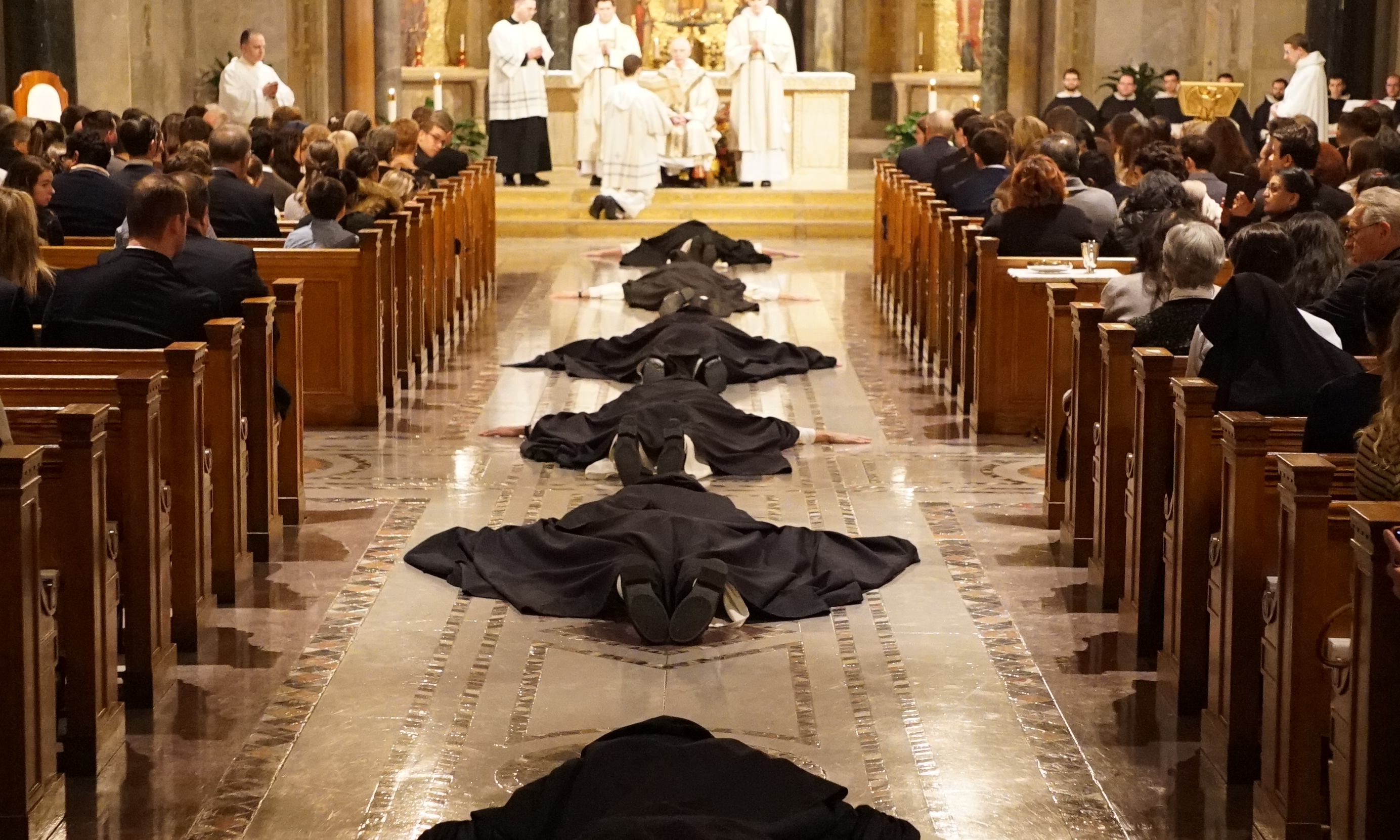Religious names are wonderful. While they can sometimes feel more like a penance, they are always a grace. Upon receiving your religious name in the Order, it takes a while to “learn your name.” It’s not uncommon to find a novice who, after a week of being in the habit, will still not be “prompt” in responding to his religious name.
The penance of the name comes from the radical change it demands. The vows the religious takes effect a holocaust of the religious to God, and this act is anticipated by putting on both new clothes and a new name. Sometimes, the change symbolized is more stark since the name is clearly a religious name—Quodvultdeus, Barsinuphius, Paschasius—and sometimes it is more subtle given the familiarity of the name—John, Jeremiah, James. Regardless of the novelty of the name, the penance is not just found in the need to relearn your name; it is also found in the need to constantly be “clothed” with Jesus Christ (Rom 13:14). But, this is not a penance that is carried by the religious alone. God gives grace to help.
There are at least three aspects to the grace that God gives to the religious on account of the religious name.
First, a religious name is a name first carried by someone else—a saint. I am firmly convinced that, when taking a religious name (as well as baptismal and confirmation names), the saint chooses you, you don’t choose the saint. From all eternity, God desired to entrust you to the care of this saint. The saint may be the patron of television, aviation, or coffee, but when you take a religious name, that saint is your patron. In a special way, you now share in the grace of that saint’s heroic virtue. You have been entrusted to have this particular saint as an advocate and an aide in your sanctification. And, as a result, you are able to make God’s name more glorious by proclaiming the great things he has done through that saint.
Second, names convey mission. If we look at the various names that were changed in scripture—Abram to Abraham, Jacob to Israel, Saul to Paul, Sarai to Sarah, Simon to Peter—we see that the name change is always accompanied by an invitation to collaborate uniquely in God’s plan of salvation. So, in taking a religious name, the person is called, despite being totally unworthy, to participate in the redemption of the world in a deeper way. This takes many forms, but the underlying aspect to all of them is being called to a deeper charity.
Third, a new name prepares us for heaven. Not too long before her death, Saint Elizabeth of the Trinity had a profound insight upon reading Revelation 2:17. If in heaven, God gives each of the faithful a white stone and a name, then she decided her name would be “Laudem gloriae”—“Praise of glory” or, more literally “to the praise of glory” (a reference to Eph 1:12). The young Carmelite already had a religious name and one that was centered on the primary mystery of the faith—the Trinity! But, knowing that there could always be more participation in the goodness of God, she sought to be so immersed in the Trinity that her very identity flowed from praising God. In a similar way, taking a religious name prepares us to be given the white stone upon our entry into heaven. It familiarizes us with receiving a name and living out the praise of God’s glory. The name prepares us to identify ourselves totally with our “God-ward” identity.
Religious names, even if they can be a penance, are always a grace. And it is purely due to God’s goodness that he says to us: “I have called you by name, and you are mine (Isa 43:1).”
✠
Photo by Br. Benedict Hernandez, O.P. (used with permission)







